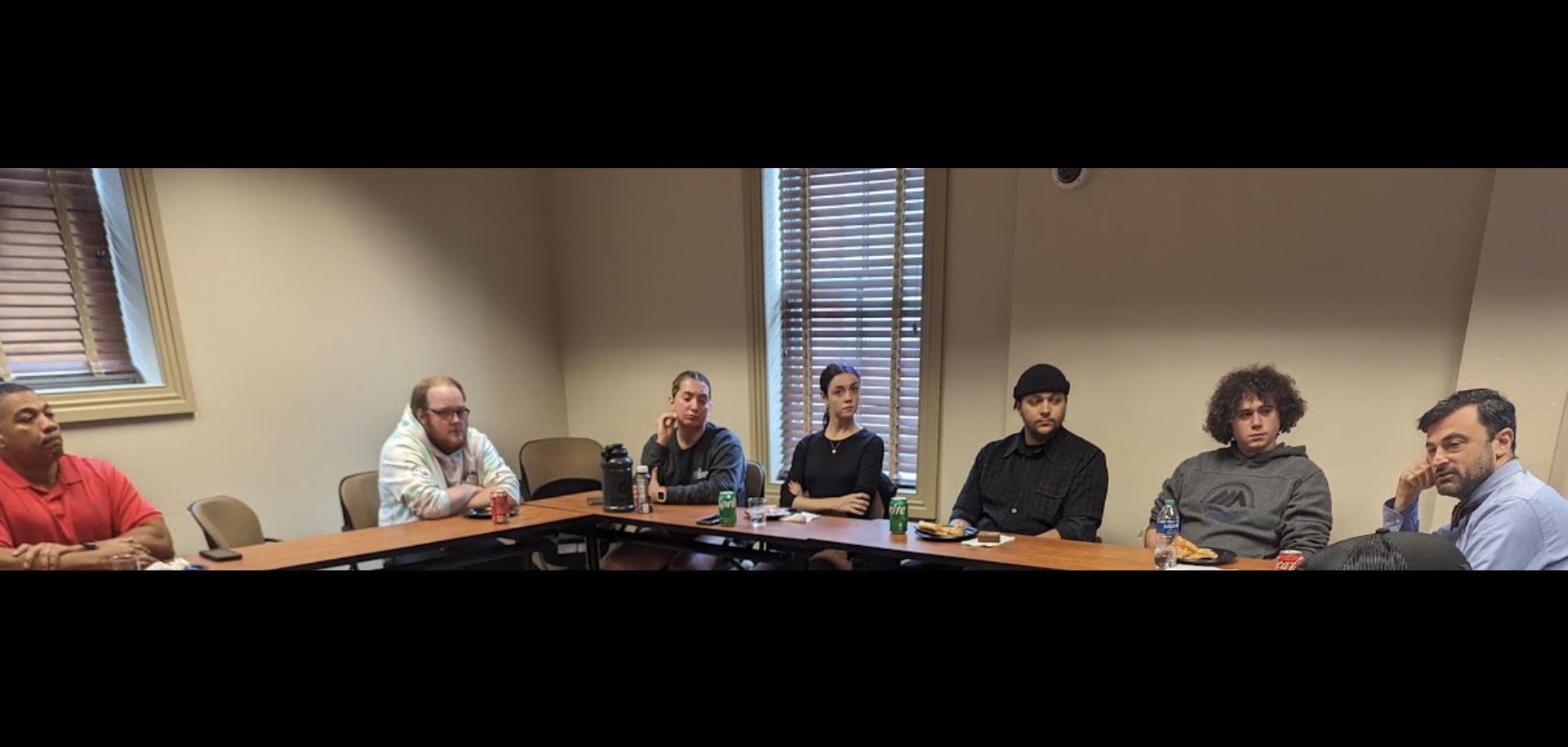
Inside the Deep Thinkers’ Club
It was a gray, cool day as the riverline rumbled by, but inside the tone was conversational and friendly. I was in the meeting room of 429 Cooper Street; the philosophy/religion department’s building. Through my Intro to Philosophy professor, I’d been alerted to the existence of a new club. Or at least, it was new to me. The Philosophy and Religion Department’s Deep Thinkers Club was having its inaugural meeting for the year. The name alone struck me as interesting and perhaps a little silly, but both as a student and as a student journalist, I felt I simply needed to attend this new club.
Introductions were first underway, as the club’s advisors had stepped out to secure our pizza. Professor Margaret Betz introduced herself with a shrug, “I’ve already taught all of you!”
While obviously the aim of the deep thinkers’ club was to stimulate good conversation amongst its members, there was another item on the agenda: the Philosophy/Religion department was undergoing a bit of a student body brain drain and they wanted to get the word out to the student body.
“We are a dual department after all, two halves of one part philosophy and one part religion. And no matter how healthy our first half is, we can’t ignore the latter half if it needs attention,” said Professor Betz during an awareness drive on the quad that wednesday.
“We’re trying to meet the needs of the student body,” she followed.
The very next order of business was on our, the students’ shoulders: she asked us what we wanted to see from our (emphasis our), Philosophy and Religion department. Responses from some students were candid: Sometimes it was frustrating to see mainly white Western Philosophy classes.
“What does it mean for a white professor to take this subject matter (Indigenous thought), and move forward with it to diverse students in a thoughtful way? We do see this issue.”
The professors elaborated that there was a growing push among western philosophy departments, for example, to study Buddhist modes of thought and integrate them into their courses.
Another request was for the return of Philosophy of Art, a now non-existent class that for a lot of students was their first big taste of philosophy but was only available to students of the Honors College.
“We’re committed, and we really care. One of the benefits of our small campus is that we all know each other, for the most part.”
“Sometimes the machinery moves so slow, y’know, you have to throw something in.”
The meeting briefly dipped into some ‘remember when’, one which would probably not come up very often in other clubs:
“Remember that antinatalism talk last year? My god, that was intense….” “Mhmm, the room, it crackled, people pouring their hearts out…”
Antinatalism, of course, is a philosophy that argues against being born and states that life leads only to suffering. Not the usual club fare to be chatted about over pizza and Coca-Cola! The discussion and camaraderie among this club and its members was like that of a group of friends who just so feel like tackling some big topics, like the nature of evil or what it means to live a full life. As long as this club sticks around, the faculty of the Philosophy and Religion Department will ensure that there is always room on campus to slow down and think deeply.

